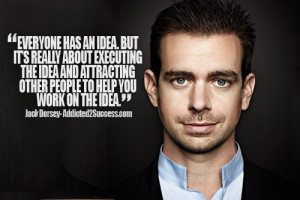Success Advice
The Best Career Advice You’ll Ever Get

Listen up – this is going to be the best career advice you’ll ever get.
Are you an expert?
If not – You damn well should be.
Deep domain expertise is essential to really thrive in your working environment – especially in our modern society.
Why?
The world is speeding up faster and faster; We have an unseen rate of technological improvements, a demographic explosion, declining fossil fuels, an economic shift to Asia and so-on.
Basically; the world is getting more and more competitive by the day and you don’t want to be left behind, right?
You want to be prepared for what’s coming.
Here’s how:
Camels & Bananas
Ever since the paleolithic era we’ve been fighting over scarce resources. Whether this was food, shelter or trendy sabretooth skirts.
Times have changed – but the essence remains the same; it’s resources we’re after.
Money mainly.
In the old days, we used to have a trading system where hunters would trade their catch with fishers for example. This is an equal exchange of value of differently skilled people.
The same concept still applies today. Money simply has made trading your entire life easier (This way you don’t have to barter anymore about how many camels your banana’s are worth.)
Simplicity!
- You pay money in the supermarket so you don’t have to grow your own crops
- You pay money to the dentist so you don’t have to learn how to pull your own teeth
- You pay money to the plumber so you don’t have to manually declog your own sink.
This system allows us to tap into the expertise of others. The more difficult the task, the more money they get.
Being able to do what others cannot is what makes you valuable.
Anyone can sell shoes, anyone can run behind a dumpster truck, anyone can sell fast-food. But not everyone knows how to build a house, lay electrical wiring or perform an open-heart-surgery. The more difficult and in-demand your skills are – the higher your pay-grade will rise.
If you want more income – You have to deserve it first.
How?
By building up difficult skills that are high in demand based on your strengths.
For illustrative purposes I’ve made this fancy info-graphic;
This means that the barrier of entry for competitors will be high (less competition) and you work in a field where your skills are highly valued.
Additionally, building on strength gives you an “edge” on others.
Sounds sweet right?
So what are strengths?
Strengths are the things we naturally excel at – the things that come “naturally” to us.
Build. On. Them.
“One should waste as little effort as possible on improving areas of low competence. It takes far more energy to improve from incompetence to mediocrity than it takes to improve from first rate performance to excellence” – Peter Drucker
So how do you start?
How Do I Find My Strengths?
You find strength through self-analysis
The best way I’ve found to do this is by keeping a journal of my life in which I’m able to spot different trends. Over time you’ll be able to hone down on what you’re really good at.
“Know thyself” – Socrates
Here are three ways to discover your strengths:
1. Self-Assessment
Here are some questions you should ask yourself when looking for your personal strengths:
- In what did I grow up around? Competence can arise from early practice, what types of activities were you involved in as a child?
- What do strangers compliment me on? You/your direct surroundings often notice your natural strengths faster than you do. Just ask around.
- What did I want to become as a child? What were the underlying trends?
- What have I been doing the last 10 years? Competence comes from doing a certain thing for a long period of time.
- What can I effortlessly talk about without losing drive?An interesting topic is most likely something you’re highly skilled at or highly interested in.
- What are the things I effortlessly excel at? What activities come easy for you?
- In what areas do I learn quickly? Some skills are perfectly suited to our temperament and therefore we’re able to pick these up much faster than others.
- Who do I envy/admire? Jealousy is a nasty but beautiful emotion as it shows us what we truly want. The same goes for admiration.
2. Reading
Furthermore, a great book that will help you find more strengths is Managing Oneself by Peter F. Drucker.
Read the summary and define for yourself:
- Am I a reader or a listener?
- How do I learn best?
- Do I work well with others or do I perform better alone?
- Do I produce results as decision maker or as an adviser?
- Do I perform well under stress or do I need a structured environment?
Alright – what’s next?
3. Personality Tests
A great way to explore further is by doing some personality tests (although they are often too general – it’s quite likely that they’ll give you some more career-indicators)
Here are the ones I recommend:
- MBTI-test
- DISC-assessment
- Enneagram
Learn more about each type by simply Googling the results you’ve gotten.
Put all of these answers in a separate word-sheet and try to determine for yourself the answer to this question;
How can I combine my skills (based on strength) and my interests to solve a need for other people?
Now go do exactly that.

Going Deeper
In our current information society it might be not enough to be simply highly skilled in only one particular field. The combination of different, highly valued skills is also often what elevates your pay-grade.
Here’s some other tips to prepare for the future:
- Learn how to learn. Optimize your learning process.
- Life-long learning. Never stop growing – aspire to become a polymath (a person whose expertise spans a significant number of different subject areas.)
- Keep track of global trends. Where is the world going and how can I prepare for this? Especially the technological boom is very prominent – stay ahead of the robots!
- Work for yourself. Everyone will need to become an entrepreneur in the future
Essence
The world is an inherently competitive place. You’ll need an edge to become indispensable & the only way to become indispensable is to excel at things others cannot do.
Competence at a skill will lead to enjoying the activity more – enjoying it more means you’ll be doing it more which in turn makes you more competent.
It’s an endless loop.
Eventually you’ll start to love it and it’ll become your “passion”. So don’t go searching for something until it “feels just right” but create it by building on strengths. Don’t waste time and energy on an endless passion-chase.
Note: Strengths are solely performance indicators (not unchangeable truths). So don’t obsess about them. You can still “be whoever you want to be”, but you won’t perform optimally if you build your life on weakness. It can be stretched – just not indefinitely.
“Successful careers are not planned. They develop when people are prepared for opportunities because they know their strengths, their method of work, and their values. – Peter F. Drucker
So tell me;
What are your strengths?
I hope this advice is timely for you. There’s so much wasted time & energy (and frustration) in fields where we just don’t have a natural advantage in. And the world is simply too much of a competitive place not to use this.
- Why can’t I perform like colleague x?
- Why do I need to put in all this effort when colleague y is slacking to get the same results?
Thanks for taking the time to read my post! I hope you liked it. If you think someone you know might benefit from this post be sure to share it around. If you’re having anymore thoughts or questions about this topic, feel free to share them with me in the comment section below!
Business
Why Smart Entrepreneurs Are Quietly Buying Gold and Silver
When stocks, property, and cash move together, smart business owners turn to one asset that plays by different rules.

You’ve built your business from the ground up. You know what it takes to create value, manage risk, and grow wealth. But here’s something that might surprise you: some of the most successful entrepreneurs are quietly adding physical gold and silver to their portfolios. (more…)
Business
The Simple Security Stack Every Online Business Needs
Most small businesses are exposed online without realising it. This simple protection stack keeps costs low and risks lower.

Running a business online brings speed and reach, but it also brings risk. Data moves fast. Payments travel across borders. Teams log in from homes, cafés, and airports. (more…)
Business
If Your Business Internet Keeps Letting You Down, Read This
From smoother operations to better security, dedicated internet access is quietly powering today’s high-performing businesses.

Today, a dependable internet service is the bedrock for uninterrupted business operations. Many organizations rely on stable online connections for communication, data transfer, and customer interaction. (more…)
Did You Know
How Skilled Migrants Are Building Successful Careers After Moving Countries
Behind every successful skilled migrant career is a mix of resilience, strategy, and navigating systems built for locals.

Moving to a new country for work is exciting, but it can also be unnerving. Skilled migrants leave behind familiar systems, networks, and support to pursue better job opportunities and a better future for their families. (more…)
-

 News3 weeks ago
News3 weeks agoBrandon Willington Builds 7-Figure Business by Ignoring Almost Everything
-

 Health & Fitness3 weeks ago
Health & Fitness3 weeks agoWhat Minimalism Actually Means for Your Wellness Choices
-

 Did You Know3 weeks ago
Did You Know3 weeks agoWhy Most Online Courses Fail and How to Fix Them
-

 Business3 weeks ago
Business3 weeks agoIf Your Business Internet Keeps Letting You Down, Read This
-

 Business2 weeks ago
Business2 weeks agoEntrepreneur’s Guide to Pay Stubs: Why Freelancers and Small Business Owners Need a Smart Generator
-

 Business1 week ago
Business1 week agoThe Salary Shift Giving UK Employers An Unexpected Edge
-

 Business2 weeks ago
Business2 weeks agoThe Simple Security Stack Every Online Business Needs
-

 Scale Your Business1 week ago
Scale Your Business1 week ago5 Real Ways to Grow Your User Base Fast































10 Comments